Challenges and difficulties of Nursing Students, at the University of Gjakova, in Relation to Work and Employment Models
© 2024 Besarta Pelaj, Dijana Beqa, et al. This is an open-access article distributed under the terms of the Creative Commons Attribution License, which permits unrestricted use, distribution, and reproduction in any medium, provided the original author and source are credited.
Abstract
Migration is a very complex and challenging factor in Kosovo, whose trends continue to play an extraordinary role in the economic and political developments in the country. Historically, Kosovo has faced the departure of citizens towards developed western countries, whose main destinations have been Germany, Switzerland and Austria. Despite the fact that the majority of the Kosovar diaspora lives in Germany, the migration reforms, driven mainly as a result of the labor shortage in Germany, continue to attract Kosovars, influencing that the trend of emigration still continues to a large extent.
Only in 2021, 21,487 people entered Germany from Kosovo, and 4,323 people originating from Kosovo left Germany, where the net migration in this year was 17,164 people.
Human capital and a qualified workforce that can satisfy the labor market’s needs for skills and drive innovation are essential for increasing competitiveness, attracting investment and the ecological and digital transition of the region. They are also the main pillars of an economy’s resilience and prosperity, which is particularly important in a changing international environment and its consequences covid-19 pandemic.
The continued high levels of labor force emigration, especially of young talents, constitute a serious development challenge for the region. While they relieve pressure from the labor market and reduce unemployment levels, they also promote and accentuate the region’s apparent skills mismatches and shortages; they, in turn, reduce the growth potential of local companies and may prevent potential investors from finding adequate skills. Creating the right conditions for attracting investment and creating new jobs by stimulating career prospects – while producing skills that match the needs of the labor market – is a prerequisite for building a resilient economy and retaining or attracting of talents.
Globalization and the increased interconnection of economies, societies and cultures also extends to higher education and academic life. The internationalization of higher education serves as a context, at the same time it is driven by the mobility of students between countries and institutions in different parts of the world. In addition to the physical movement of students, there are other initiatives that globalize education such as international research networks, harmonization of curricula, online courses, university branches in different countries, bilateral and multilateral schemes for the exchange of students and staff, and the prevalence of English as a global academic language.
Chamber of Nurses of Kosovo (OIK), reports that during 2023, the Chamber has issued 713 licenses for nurses, certificates that serve them for employment abroad. “According to the statistics, the year 2021 has seen a decline, of course, based on the analysis, the pandemic is also the cause. The increase was in 2022, which started significantly, and 543 nurses from all over Kosovo applied for non-plasticizing licenses. While in 2023 this number has increased, it means that by the 25th of December they requested 713 non-plasticized licenses, which means that they are looking for these licenses to migrate to the countries of the region and to develop the profession further “.
Purpose and Methodology
Purpose: Information on the challenges and difficulties of nursing students in relation to work and employment models.
Methodology: For the realization of this paper, a quantitative method was used through a questionnaire distributed online.
Sample: The questionnaire was completed by a total of 100 students, 65 in nursing (bsc) and 35 in health management (master), “Fehmi Agani” University in Gjakova, participation in the research was voluntary, all rules and ethical principles were respected, never exerting any kind of pressure on students regarding participation. Consent was previously obtained from the University management for the realization of the study.
The questionnaire was distributed online on dt. 07.01.2024, has remained open for participation for approximately two weeks.
Results
|
Age group |
|
Gender |
|
Place of residence |
|
|
18-24 years |
Or 87.2% |
Woman |
70%% |
Urban |
45.4% |
|
25-29 years |
Or 7.4% |
Men |
30% |
Rural |
54.6% |
|
30-35 yeasr |
\\\\ |
|
|
|
|
|
Over 35 years |
5.4% |
|
|
|
|
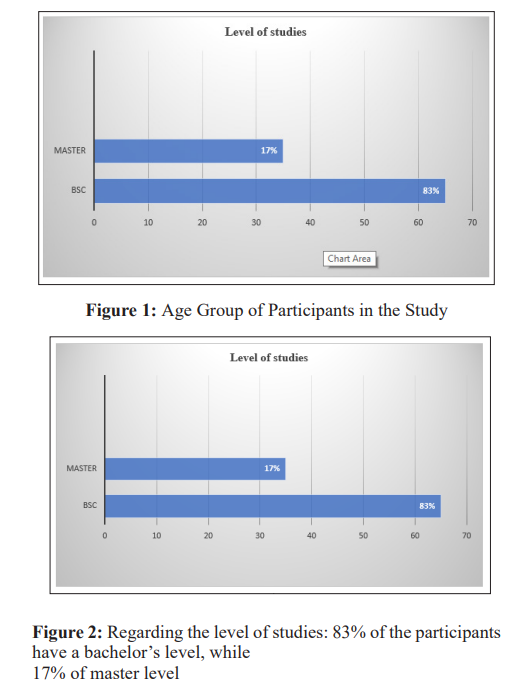
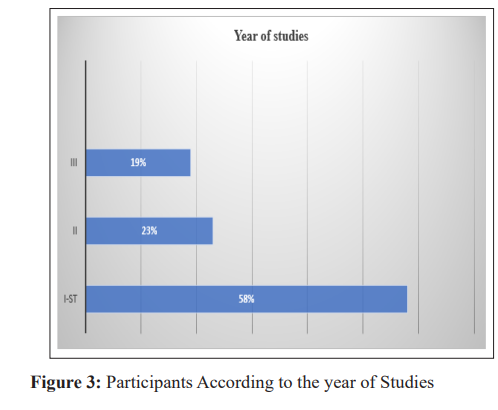
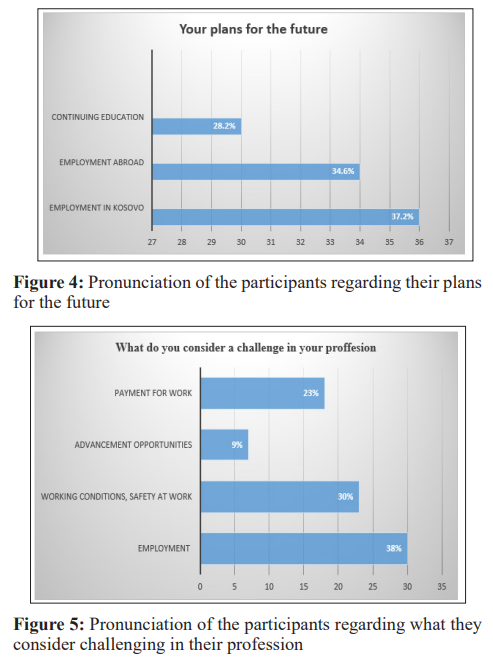
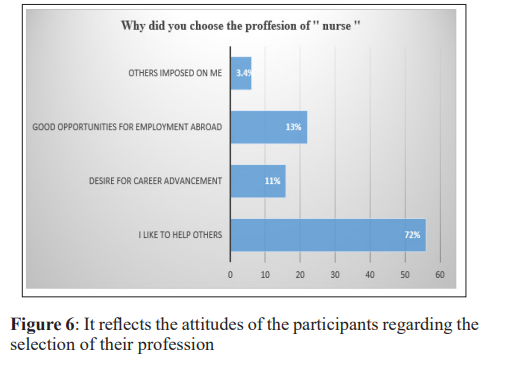
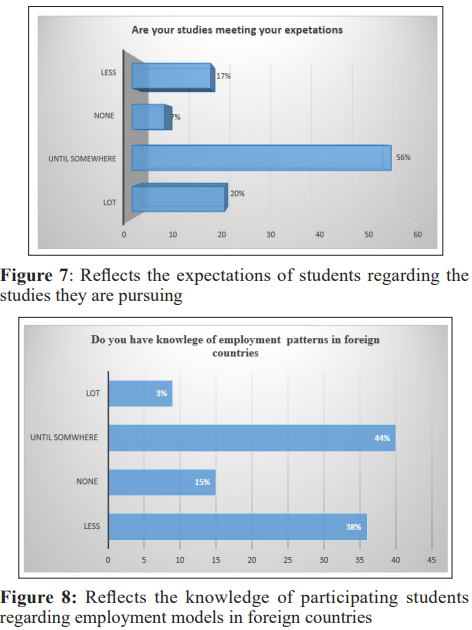
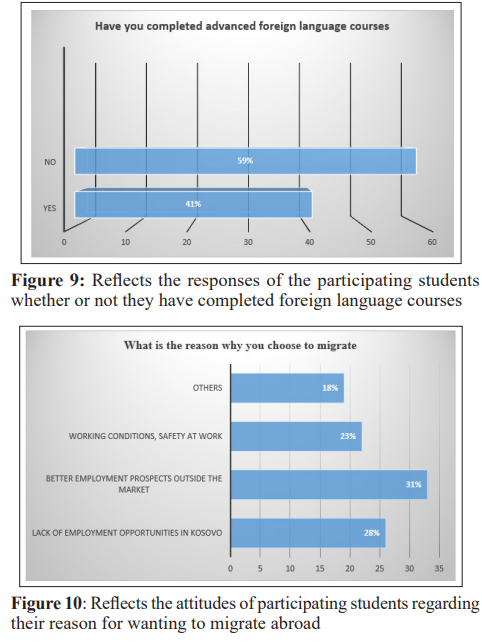
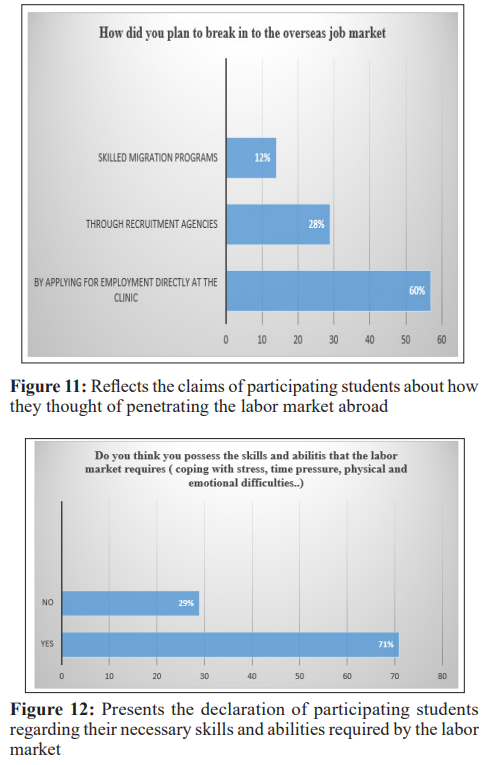
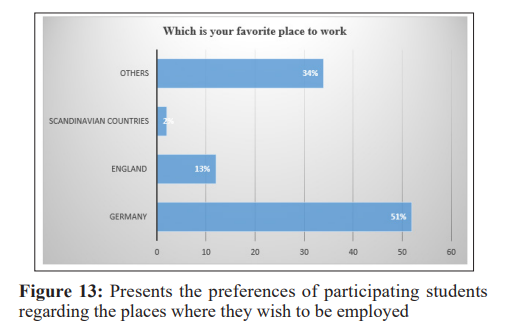
In this case, the target of our study were the students of the “Fehmi Agani” University of the Faculty of Medicine, who did not hesitate to express their attitudes and opinions regarding our research topic.
The Institute for Development Policy (INDEP) in collaboration with the Institute for Strategic Studies and Prognosis (ISSP) have presented the ethnographic research “Research on the NEET population for three municipalities of Kosovo - Pejë, Deçan and Junik”.
This research includes young people aged 15-29 from the above-mentioned municipalities, who are neither in school nor in employment. According to the data from the research, about 70% of young people have thought about leaving Kosovo and looking for work abroad [1-6].
Even in our research, young people have the impression that Kosovo does not offer them the necessary opportunities to live, then the few employment opportunities, working conditions, safety at work, where e.g. to the question “What do you consider a challenge in your profession”, most of them or 38% stated: Employment, then Working conditions, safety at work 30% stated, Payment versus work 23%, and only 9% stated advancement opportunities. From this we can see what are the main concerns of nursing students and why they are choosing to migrate to other countries.
Conclusion
From the survey of students and the analysis of the obtained results, we came to the conclusion that students and in general young people are disappointed with the current reality in our country, and they are looking for employment opportunities by choosing the path of migration as a few years ago when migration was mandatory due to the influence of the occupier, and now the same is happening in the Independent and Democratic State of Kosovo. All this from the low standard, inequality, non-dignified treatment, loss of trust in institutions (decline of institutional awareness), low income, non-compliance with the law, produce frustration which turns into flight, as “escape from crisis, towards hope”, are among the basic reasons for the migration of young people.
Migration causes many consequences, starting from breaking the balance of age and gender to reducing the birth rate.
This is also due to the decrease of applicants for studies at the University of Prishtina and other Universities of Kosovo in recent years. Globalization and the increasing interconnectedness of economies, societies and cultures also extends to higher education and academic life.
The internationalization of higher education serves as a context, at the same time it is driven by the mobility of students between countries and institutions in different parts of the world.
In addition to the physical movement of students, there are other initiatives that globalize education such as international scientific research networks, harmonization of curricula, online courses, University branches in different countries, bilateral and multilateral schemes for the exchange of students and staff, and the prevailing of English as a global academic language.
“The phenomenon of running away is caused by pull and push factors, related to the lack of well-being. The need to change the way of life is a developing trend as a reaction to the crisis which has turned into a survival culture. The low standard, inequality, non-dignified treatment, loss of trust in institutions (decline of institutional awareness), low income, non-respect of the law, produce disappointment which turns into flight, like flight from crisis, towards hope” [7].
Recommendations
Improving education and employment policies and developing vocational guidance systems is a key component of national lifelong learning strategies.
Increasing scholarships for students and payment of internships that are mandatory after graduation.
Development of the health system. Law on health insurance.
Correct employment in private and public institutions, no nepotism.
Improvement of working conditions, dignified wages, increase and payment of custodians, extra hours, night shifts, holidays, leveling according to education, description of duties and responsibilities.
Lifelong learning, together with continuous professional development, encourages personal growth and development in order to respond successfully to the demands that are increasingly placed before the individual.
References
- Current migration and potential for students from Albania: a possible “BrainDrain” Russell King, Ilir Gëdeshi; Tirana 2020; Friedrich-Ebert-Stiftung Institute. https://library.fes.de/pdf-files/bueros/albanien/17259.pdf.
- (2023) Migration of Kosovars to Germany STATISTICAL ANALYSIS GAP Institute, https://www.institutigap.org/documents/64573_Migrimi_kosovareve.pdf.
- OECD (2022) Labor Migration in the Western Balkans: Designing Patterns, Addressing Challenges and Reaping the Benefits 22.
- King R, Ruiz-Gelices E (2003) International student migration and the European ‘year abroad’: effects on European identity and subsequent migration International Journal of Population Geography 9: 229-252.
- (2023) Magazine “Health and Nursing Care” https://oik-ks.org/publikime/revista/.
- https://telegrafi.com/rre70-e-te-rinjve-kane-menduar-ta-leshojne-kosoven-hulumtim-nga-indep-per-tri-komuna-te-kosoves-peje-decan-dhe-junik/.
- https://nacionale.com/sociale/kosova-sofron-mundesi-pse-po-ikin-te-rinjte.

